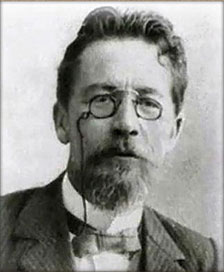The Tartar walked up to Semion, and looked at him with hatred and repulsion. Then, trembling, and mixing Tartar words with his broken Russian, he said:
“He is a good man, a good man, and you are bad. You are bad. He is a good soul, a great one, but you are a beast…. He is living, but you are dead…. God made men that they might have joys and sorrows, but you ask for nothing…. You are a stone,—earth! A stone wants nothing, and you want nothing. … You are a stone, and God has no love for you. But him He loves!”
All laughed; the Tartar alone frowned disgustedly, shook his hand, and, pulling his rags more closely round him, walked back to the fire. Semion and the ferrymen returned to the hut.
“Cold!” said one ferryman in a hoarse voice, stretching himself on the straw with which the floor was covered.
“Yes, it’s not warm,” said another. “A galley-slave’s life!”
All lay down. The door opened before the wind, and snowflakes whirled through the hut. But no one rose to shut it, all were too cold and lazy.
“I, for one, am all right,” said Semion. “God grant everyone such a life.”
“You, it is known, were born a galley-slave—the devil himself wouldn’t take you.”
From the yard came strange sounds like the whining of a dog.
“What’s that? Who’s there?”
“It’s the Tartar crying.”
“Well … what a character!”
“He’ll get used to it,” said Semion, and went off to sleep.
Soon all the others followed his example. But the door remained unshut.
